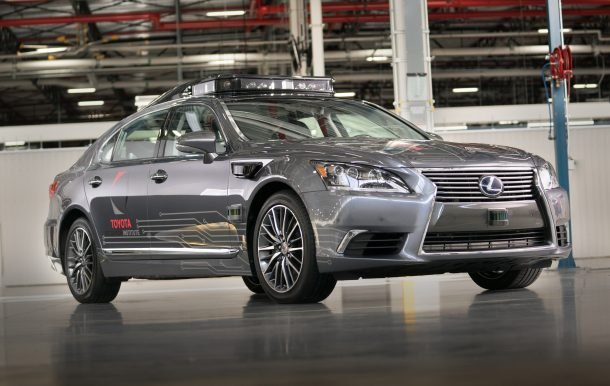#AVSTARTAct
GM's First Self-driving Car May Keep Manual Controls
This time last year, we were under the impression that General Motors’ first attempt at an autonomous vehicle would come without pedals, a steering wheel, or any other controls traditionally associated with driving. Cruise Automation, the GM subsidiary tasked with developing the vehicle, seemed confident it could deliver something that didn’t need to rely on human intervention to be truly safe. This promise was reiterated by GM in January of 2018 via a request to produce the car sans controls though federal exemption.
U.S. laws governing what constitutes a safe automobile were written before autonomous vehicles entered development, creating problems. It wasn’t evident to anyone that GM could legally manufacture a vehicle that lacked traditional controls, as existing laws stipulated that all automobiles had to have them. While the Department of Transportation has proven rather lenient on policing AVs in terms of testing, rewriting the Federal Motor Vehicle Safety Standards or providing exemptions was a bridge too far — especially when self-driving tech is new, frequently misunderstood, and backed heavily by corporate interests. The existing guidelines remain unchanged and new legislation pertaining to self-driving vehicles has stalled in Congress.
Apparently sick of waiting, General Motors now appears satisfied to just build AVs with manual controls.
Are Government Officials Souring On Automotive Autonomy?
Thanks to the incredibly lax and voluntary guidelines outlined by the National Highway Traffic Safety Administration, automakers have had free rein to develop and test autonomous technology as they see fit. Meanwhile, the majority of states have seemed eager to welcome companies to their neck of the woods with a minimum of hassle. But things are beginning to change after a handful of high-profile accidents are forcing public officials to question whether the current approach to self-driving cars is the correct one.
The House of Representatives has already passed the SELF DRIVE Act. But it’s bipartisan companion piece, the AV START Act, has been hung up in the Senate for months now. The intent of the legislation is to remove potential barriers for autonomous development and fast track the implementation of self-driving technology. But a handful of legislators and consumer advocacy groups have claimed AV START doesn’t place a strong enough emphasis on safety and cyber security. Interesting, considering SELF DRIVE appeared to be less hard on manufacturers and passed with overwhelming support.
Of course, it also passed before the one-two punch of vehicular fatalities in California and Arizona from earlier this year. Now some policymakers are admitting they probably don’t understand the technology as they should and are becoming dubious that automakers can deliver on the multitude of promises being made. But the fact remains that some manner of legal framework needs to be established for autonomous vehicles, because it’s currently a bit of a confused free-for-all.
GM Claims It Will Start Manufacturing Autonomous Cars Next Year
General Motors has announced it will begin manufacturing autonomous vehicles by 2019. Since purchasing Cruise Automation in 2016, GM has invested heavily into self-driving cars. However, its Chevrolet Bolt-based Cruise AV has only served as a testbed for the technology. That will change next year when the Orion Township assembly plant in Michigan starts building examples for commercial use.
If so, that would make General Motors the first company to sell an autonomous vehicle. However, it’s not entirely clear if that’s the ultimate goal. Thus far, GM has only said the autos will enter into a “ride-sharing environment” where the vehicles can be managed in a fleet — perhaps something akin to Uber.
Obviously, the analogy is as accurate as it is unfortunate. Uber recently suspended autonomous testing after one of its vehicles fatally struck a pedestrian earlier this week. While GM’s product planning can hardly be faulted for the goings-on at another company, the collision could see the general public wonder if production Cruise AVs are ready to take over the road.
Safety Group to Senate: Clue in to the 'Baseless and Exaggerated Predictions' Swirling Around Autonomous Vehicles
Last year, the National Highway Traffic Safety Administration embraced autonomous technology by redefining how it categorized cars. Spurred by automakers and tech companies, the government has opened its eyes to this new technology and seen it as a way to potentially save lives by reducing the number of roadway accidents caused by human error.
Congress has been confronted with numerous pieces of legislation on the matter, too — prospective laws that would allow automakers to put hundreds of thousands of autonomous vehicles on the street, without the need to adhere to existing safety regulations. Many have called the move necessary if the United States hopes to be the first country to produce a truly self-driving car and start saving some lives.
It sounds almost too good to be true, and some claim it actually is. A group of public interest organizations is attempting to sound the bullshit alarm, claiming automakers are misleading government officials in the hopes of developing and profiting from unproven technology.
Senate Fumbles With Self-driving Legislation
Bipartisan legislation to “promote the safe development of autonomous vehicles” is currently being held up by a trio of Democrats, according to U.S. Senate Commerce Committee Chairman John Thune. While much of Congress is hoping to push the AV START Act through, Sen. Dianne Feinstein and two colleagues have blocked unanimous consent — stalling the bill’s swift progress by forcing a floor vote.
Thune, who sponsors Senate Bill 1,885, told reporters he hoped Feinstein and the other Democrats would see the light. “We could save a lot of lives,” Thune said, adding that 94 percent of car crashes are caused by human error. “It is cutting-edge technology, transformational in terms of the economy.”
However, the opposition isn’t convinced autonomous vehicles are at a point where it’s safe to roll them out en masse on public roads.



















Recent Comments